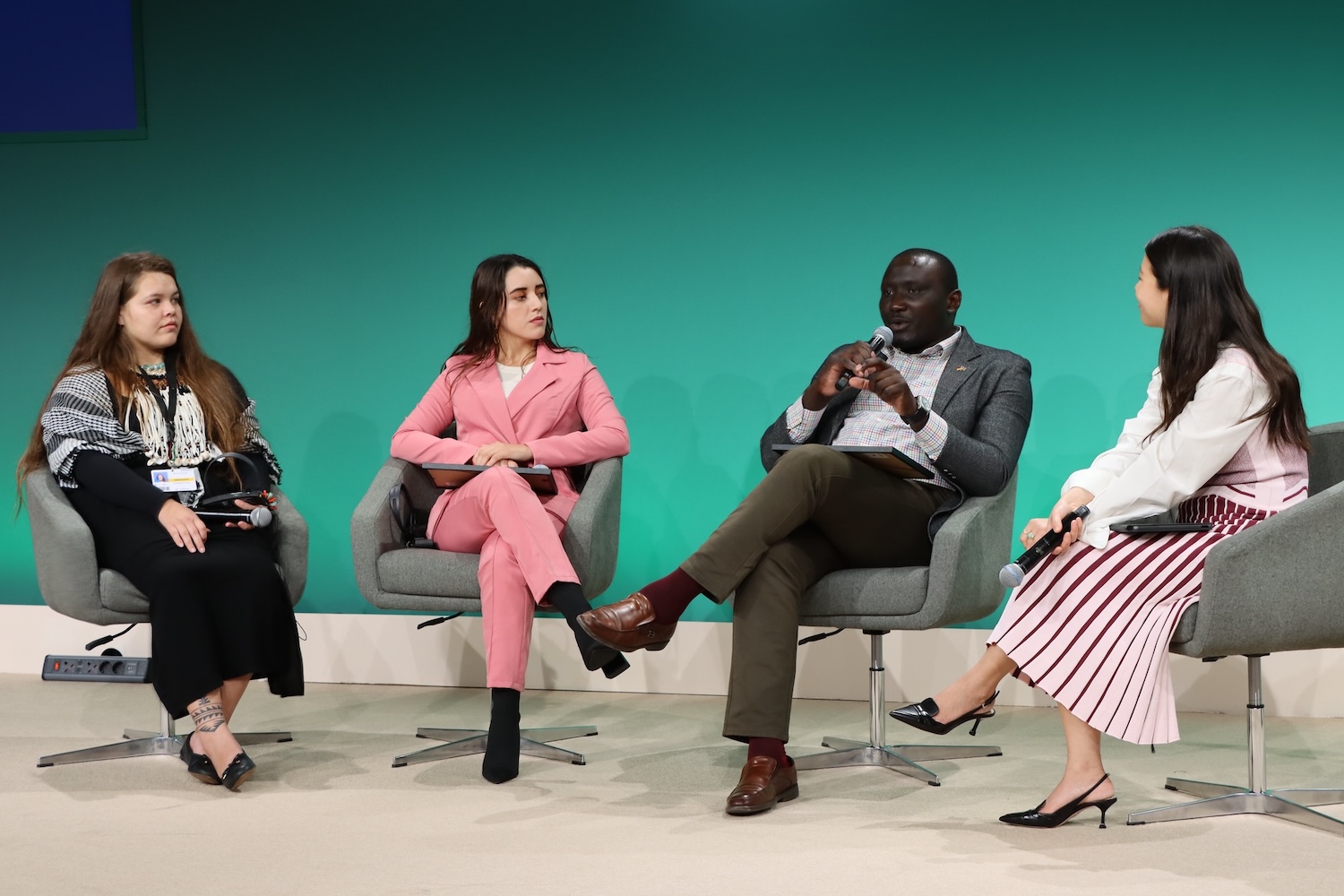
A motorcycle taxi (known as a "boda boda") in rural Kenya. (Image: Amdanykip/Wikimedia Commons)
Electric vehicles are key to decarbonizing road transport, a sector that accounts for around a sixth of global emissions. Kenya’s President William Ruto has an ambition to achieve 100 percent renewable power by 2030, and adopting low-carbon and efficient electric mobility systems will play a significant role.
Aiming for 5 percent of all registered vehicles to be electric-powered by 2030, Ruto set a target to have 200,000 electric motorcycles across Kenya before 2025. That’s compared to around 1,350 electric-powered vehicles on Kenyan roads today, with motorbikes accounting for 62 percent of those, according to a 2023 survey.
“The capital expenditure required to implement such large-scale adoption of electric vehicles is very high, so the question is: Where would the financing come from?” said Sebastian Mwaura, co-founder and CEO of the social enterprise YNA Kenya. The early-stage electric vehicle company is one of two winners of the U.N. Global Climate Action Awards announced at the COP28 climate talks last week.
Financing mechanisms for scaling up clean energy investment in emerging economies were center stage at COP28. Africa, a developing continent home to 540 million people, is warming faster than the rest of the world, despite being responsible for a small fraction of global carbon emissions. Yet Africa received just 2 percent of global investments in renewable energy over the last two decades.
Ironically, the continent also holds more than half the raw materials needed to decarbonize global economies. It has 60 percent of the best solar resources globally, yet only 1 percent of installed solar photovoltaic capacity, for example.
Crises like the 2008 financial crisis and the COVID-19 pandemic limited Africa’s economic growth while its debt continued to rise at a rate four times higher than its gross domestic product, hitting $1.8 trillion in 2022, according to the United Nations Conference on Trade and Development. Largely due to the rate at which its debt is rising, financing an energy transition or contributing to climate change solutions is practically impossible for Africa, a paradox that needs attention on a global level.
YNA Kenya aims to find a solution that doesn’t rely on global aid. “We believe the financing solution for our enterprise is embracing Web3 blockchain technology, where someone in New York or Dubai or anywhere in the world can invest in Kenya,” Mwaura said. Web3 refers to the prospect of a new iteration of the internet based on blockchain, the digital ledger technology that creates an inalterable, secure record of transactions best known for cryptocurrencies like Bitcoin.
To finance their startup, the YNA Kenya team created a carbon credit trading platform using blockchain, where companies can buy carbon credits to offset their emissions and investors can finance YNA Kenya by buying bulk carbon credits in advance at a lower price and then selling them at a profit.
“We have created a system where you will be able to buy carbon credits generated by electric motorcycles,” Mwaura said. Onboard devices will track miles traveled by YNA Kenya’s e-cycles, so they only generate carbon credits when they’re in motion. “The data is posted on the blockchain platform, whereby you cannot edit or tamper with it, and it is traceable,” Mwaura explained.

Carbon credits have proven useful for mobilizing and directing capital into projects that promote the transition to net-zero emissions. However, having trustworthy and accurately monitored carbon credit data remains a challenge. While blockchain technology does offer potential to enhance transparency in carbon markets, it’s criticized because it is a fledgling system, it consumes a lot of energy, and it is difficult to integrate into central regulatory bodies.
Still, the startup already has backing and barter technology deals with Microsoft and Google. And it's seeking further investment to integrate its carbon market blockchain platform with a payment provider to allow for seamless currency exchange, Mwaura said.
With that financing, YNA Kenya aims to bring 12,000 electric motorcycles onto the road over the next five years, which it estimates will save 64,800 metric tons of carbon dioxide equivalent. It has 20 bikes ready and plans to have 100 bikes at the start of next year.
“Beyond having a fleet on the road, over the next five to 10 years, we hope to plug the ... gadget to every electric motorcycle in Africa,” he said, referring to the onboard device that tracks e-bike miles. “Then we become the marketplace for the carbon credits, which will be huge as the adoption for the electric motorcycles comes on board.”
What’s more, the riders for the startup’s first round of electric motorcycles will be exclusively women. “We have 20 women already signed up, and everyone wants to meet them! But, to ensure their security, we will hide their information and credentials,” Mwaura said.
This is part of YNA Kenya’s Her Go program that aims to integrate women into the e-mobility sector. By mid-century, it is predicted that climate change could push up to 158 million more women and girls into poverty globally. The COP28 gender agenda calls for increased finance flows to women in regions most impacted by climate change.
YNA Kenya is also rolling out solar-powered, battery-swapping stations that will provide renewable energy for charging electric vehicles, reduce reliance on non-renewable energy sources, and build the resilience of Kenya’s EV charging infrastructure.
The United Nations Framework Convention on Climate Change (UNFCCC) has spearheaded the U.N. Global Climate Action Awards since 2011. This year, it saw applicants from 120 countries for projects that make communities more sustainable, resilient and equitable.
The 2023 awards are in partnership with the International Renewable Energy Agency (IRENA), the International Union for Conservation of Nature (IUCN) and the Permanent Representative of the United Arab Emirates to IRENA.

Abha Malpani Naismith is a writer and communications professional who works towards helping businesses grow in Dubai. She is a strong believer in the triple bottom line and keen to make a difference. She is also a new mum, trying to work out a balance between thriving at work and being a mum. In her endeavor to do that, she founded the Working Mums Club, a newsletter for mums who want to build better careers and be better mums.














